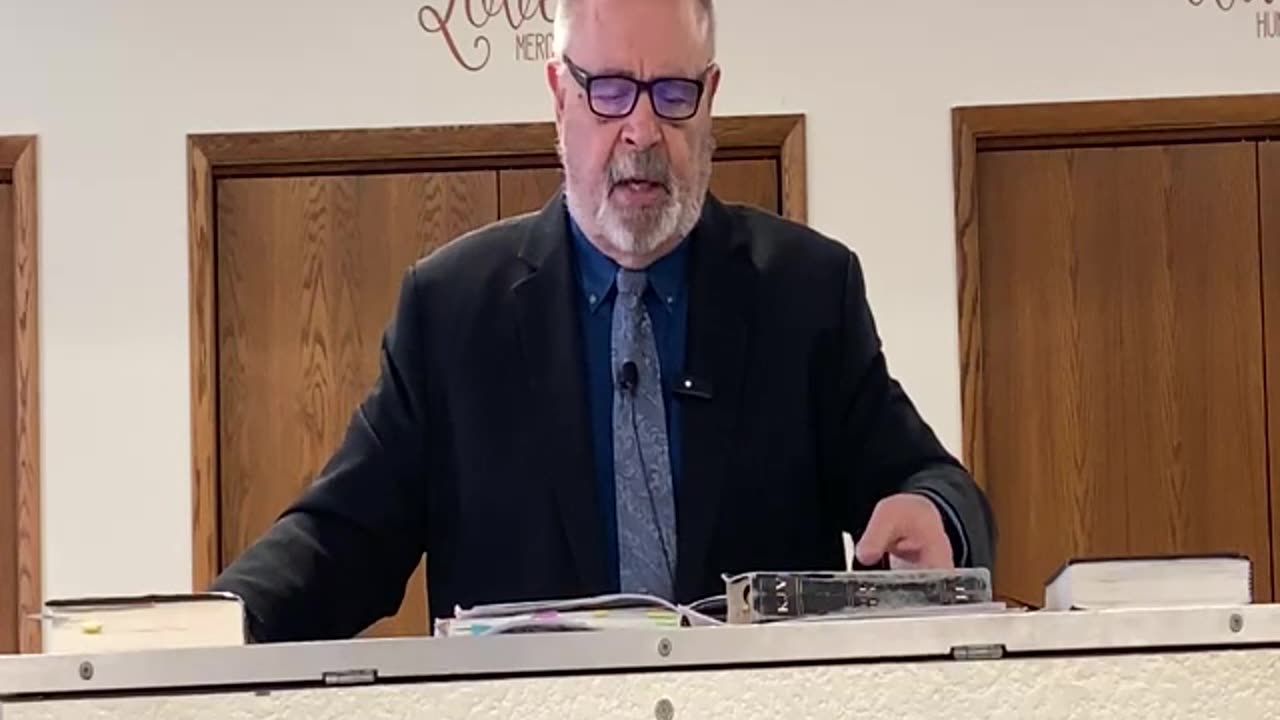Premium Only Content

Memory Laundering
The lesson begins with a prayer for healing and discusses the historical attack on Moses and its significance in Christianity. It examines abolitionist tactics, influential thought leaders, and the law's role in defining sin. The conversation highlights the Rothschilds' impact on finance, a theological debate on faith and salvation, and critiques of feminism and victim theology. Despite challenges, there is hope for a future reformation in the church.
The speaker addresses the organized attack on Moses and Christian faith in the U.S. from 1825 to 1835, critiquing figures like Lloyd Garrison and their impact on abolitionism and Christianity. He warns of the Church's vulnerability, discusses the influence of biblical criticism, and emphasizes the importance of understanding sin through the law. The speaker critiques evangelicalism and the legacy of Schofield, expressing concern over the decline of biblical focus in American churches and the need for theological education among young pastors, concluding with a call for divine reformation.
-
 12:06
12:06
John Crump News
20 hours ago $0.01 earnedTwo Cases That Should Be Examined Under President Trump's Executive Order
1.42K3 -
 1:00:33
1:00:33
Trumpet Daily
18 hours ago $3.47 earnedThe Final Coup Attempt - Trumpet Daily | Feb. 11, 2025
4.68K15 -
 2:56:59
2:56:59
TimcastIRL
10 hours agoTrump Border Czar Hints He'll ARREST Leftists Aiding Illegal Immigrants w/Mark Dubowitz | Timcast IRL
229K233 -
 41:14
41:14
The White House
8 hours agoPresident Trump Greets and Welcomes Marc Fogel Back to The United States
111K53 -
 6:48:41
6:48:41
Akademiks
10 hours agoKendrick Lamar performs at the Superbowl. Does NOT LIKE US. Now projected to sell 230K! Drake done?
153K15 -
 5:12:34
5:12:34
MyronGainesX
12 hours ago $32.30 earnedChat With Pearl, Tucker vs Piers, Shopify Cancels Ye, FBI leaks ICE Raids, Trump On Jordan & Gaza!
102K31 -
 1:33:07
1:33:07
Man in America
20 hours ago🚨 Chlorine Dioxide: Banned, Censored & Feared by Big Pharma w/ Jonathan Otto
58.7K71 -
 9:21
9:21
Colion Noir
10 hours agoMan Robbed Carrying Gun In Back Pocket, Then Shot Trying To Get It Back
45.7K21 -
 2:00:39
2:00:39
DLDAfterDark
8 hours ago $10.65 earnedAnderson American Big Bore pistol Contest!
96.3K4 -
 2:02:20
2:02:20
Flyover Conservatives
1 day agoBiohacking Your Health: The Future of Medicine & Longevity - Part 2 - Deep Dive: Drs. Mark and Michele Sherwood | FOC Show
96.9K2